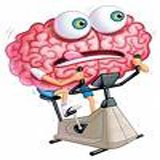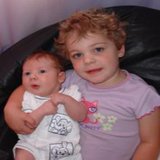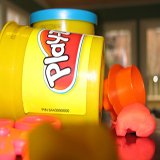Stimulating Child Language Development -
31 Month Old to 36 Month Old
By now your child has grasped all the basic child language development skills and the foundations are set for further advances in vocabulary and grammar.
This is a process that will continue throughout the remainder of his childhood and into adulthood. He still has a lot to learn, but he is a fully fledged 'talker' at the age of 3.
Child Language Development
25 - 30 month old
Suitable suggestions for Child Language Development
(31 Month Old - 36 Month Old)
There are lots of ways you can promote child language development and your child's ability to use language for the purpose on interpreting and explaining his experiences.
Ask lots of questions
For example, talk to him about the television program he just watched; ask him questions about the story lines, about the characters in it, and about his opinion of the program.
Questions like these make him use language in ways other than just telling you what he wants or doesn't want. You can do the same about his friends, by asking about them and why he likes them. You might be surprised at the thoughtfulness of explanations given by your 3 year old.
Real Meaning of Words
You'll also find that his interest in words themselves intensifies. He starts to ask you questions about the meanings of different words, perhaps ones that he has heard you use or that he heard at nursery. The meaning of these words may be obvious to you, but not to him. So be patient, give him your attention, and answer appropriately.
Particular words may fascinate your child for no apparent reason. One day he hears someone say something and the actual sound combination of the word amuses him - before you know it he uses that word constantly, probably not accurately, make sure he knows its real meaning.
Increase Social Experiences
Around this time, the focus of your child's language moves away from himself to include other people. It's no longer all about what he wants, or what happened to him, or what he thinks - his increasing social awareness turns his attention towards the feelings and reactions of others.
This is a positive step forward, and you can enhance this aspect of his language by providing lots of opportunities to mix with other children and adults. Apart from the obvious social experiences of playgroup or nursery, he benefits from mixing with siblings and with other family members of all ages.
You might also consider enrolling him in a leisure activity class such as swimming or dancing, or whatever interests him. The speech and language he uses and hears in these varied contexts extend his own language skills even further.
Be sure to visit all the child language development pages for different ages.
Read more about the different language development stages.
Top Tips for Child Language Development
(31 Month Old - 36 Month Old)
- Start to teach individual colors.
- Give factual replies to his questions.
- Choose stories that are more demanding.
- Provide explanations.
- Talk about his drawings and modeling.
Although he may not be able to name individual colors, he is probably able to sort them. Give him a pile of colored bricks, hold up a red one, for example, and say to him 'Find another one like this'.
Investigations reveal that children in this age range mainly ask questions about facts rather than about feelings - it is a way of enhancing their knowledge. So give brief and accurate answers as required.
He is ready to listen to stories with ore complex plots and multiple characters. Pick books that are interesting and at the level of you child's understanding - these will grab his interest.
He is now at the age where he begins to understand explanations about why he should behave in a certain way. He is more likely to follow rules about behavior when they are explained to him.
When your child shows you his latest creative production - in paints, pencil of modeling material - chat to him about it. Listen appreciatively as he explains it to you in great detail.
Top Toys for a 31 Month Old - 36 Month Old
- soft toys and dolls for imaginative play
- sing-along tapes or CD's
- story books
- child-sized kitchen
Be sure to browse through all the language child development pages that is broken down in different age groups.
Read more about the different language development stages.
Find It!
Can't remember where you read something specific? Just type in your search term in the box below and your specific topic will be returned to you instantly.









